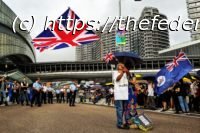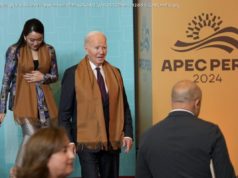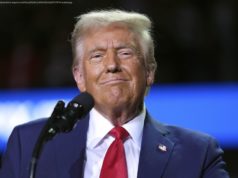As Beijing’s financial backbone, the loss of too many Hong Kongers to the British Commonwealth would be a huge loss to China.
In a fierce but very typically British exchange, BBC editor Andrew Marr grilled the nonchalant Chinese ambassador to Britain, revealing amateur drone videos showing chained people boarding a train flanked on both sides by black-armored troops. In a time when Department of Homeland Security agents are decried by the U. S. speaker of the House as stormtroopers for defending federal properties, videos from China show what a genuine totalitarian system looks like.
A full city full of people is staring down the threat of Chinese force. Three weeks after Beijing imposed a new draconian national security law on Hong Kong, China has established a “national security education” base in the neighboring mainland city of Shenzhen to “re-educate” Hong Kong students who are deemed insufficiently patriotic. As the London Times reported:
Beijing also touted teen-aged party apparatchiks who were quoted saying why this facility was important because “youth years are formative,” and Hong Kong youths need “correct theoretical guidance.”
In response, the United Kingdom suspended an extradition treaty with Hong Kong, as it is no longer independent. The United States said it would follow soon. The British government appears to be serious about a confrontation with China, despite Chinese military threats and financial warnings about China banning students from the United Kingdom, which will result in an extreme financial shortfall.
The new security law, criticized by the United States, the United Kingdom, Australia, and Canada gives sweeping power in the hands of the Chinese state. This would, effectively, nullify the “One Country, Two System” farce — which guaranteed Hong Kong’s special status as a capitalist city-state out of the legal jurisdiction of Beijing — in place since Hong Kong’s handover to China in 1997.
As Mira Raap-Hooper recently wrote in Foreign Affairs, China’s former strategy of quietly biding time is over. Beijing is heading into the part of a great power’s life-cycle in which it starts to calculate whether open coercion is a better way to reshape the global balance of power.






